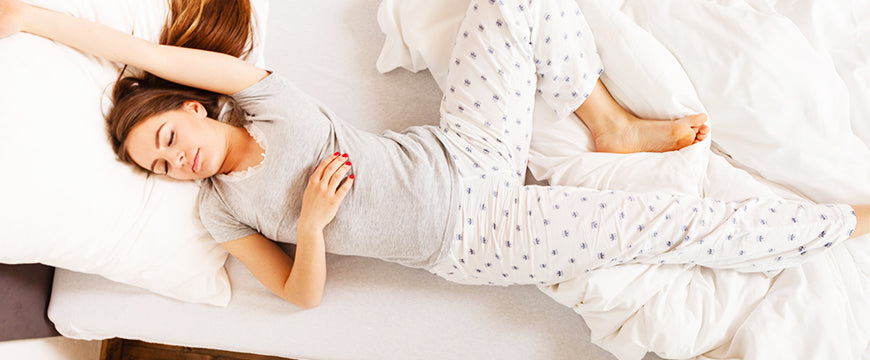Monday through Friday, you set your alarm and wake up earlier than you would like so you can stay on top of work and family obligations, household chores, and everything else you need to get done as a responsible adult. It’s exhausting!
When the end of the week rolls around, all you want to do is be able to sleep in and not worry about sticking to a schedule. You want to snooze away a few extra hours on Saturday morning and maybe stay up late to actually enjoy yourself a little bit.
And then you go to bed early on Sunday night so you can start the whole sleep (or should we say, lack of sleep) cycle all over again. There’s nothing wrong with catching up on some
extra sleep on the weekends, right?
Well, that all depends on your ability to regulate your sleep schedule successfully, and in order to do that, you have to grasp two important concepts of sleep itself – your internal circadian clock and your natural sleep drive.
What’s up with Your Internal Clock?
We all have a built-in biological clock that regulates our times of alertness and sleepiness throughout the day. For example, we usually hit the after-lunch lull and feel downright sluggish around 2 p.m. and typically feel the strongest need for sleep after midnight. These times of grogginess will feel less intense when you’ve had enough sleep, and stronger when you’re sleep deprived.
And What the Heck is a Sleep Drive?
Think of your sleep drive as a car’s fuel gauge – it lets you know when you need to get some rest and fill up your tank. The longer you go without sleep, the more your body craves it. You wake up with your sleep gauge on full, and as your day progresses, it begins to creep towards empty. When you finally give in and grab some shuteye, your tank will gradually fill up once more.
(Not So) Easy as Sunday Morning
A week of early mornings and hard work naturally causes us to long for more sleep on the weekends, when schedules (and alarm clocks) are tossed to the wind. While extra time in the sack on Saturday and Sunday mornings makes us feel better, it can cause some serious upheaval in the upcoming work week. This is thanks to sleeping in late disrupting the delicate balance between your sleep drive and your circadian clock, resulting in loss of sleep, grogginess and crankiness, and even depression. Yikes!
Going to bed early on Sunday night to get back to your weekday sleep schedule should alleviate this issue, right? The sad truth is that this solution probably isn’t a viable one. Staying up late and sleeping in on the weekend, combined with mind that’s racing with all that you have to get accomplished in the upcoming week can not only increase your stress levels, it can cause something called sleep onset insomnia – your body simply refuses to throw in the towel and get some rest due to an out of whack circadian clock and natural sleep drive.
Napping is Your Friend
So what can you do about this problem? Walking around like a zombie just doesn’t seem like your best alternative. Luckily, the solution to this issue is simpler than most – take a nap!
During the weekend, your best bet is to forget about sleeping in late and grab some extra rest in the form of napping throughout the day. Try waking up at your normal time and giving yourself the gift of one or more naps in the most optimal time frames of 30, 60, or 90 minute intervals.
You get the extra sleep that your body craves, without disrupting your natural snoozing pattern.
Achieving the Ideal Balance
If you find yourself struggling to balance your weekday and weekend sleep cycles, try using some of these helpful hints for getting the best balance of being productive, enjoying your life,
and optimizing your sleep.
Stay active during the week – Hitting the gym or going for a walk is a great way to boost your energy levels and clear your head during your work day, and give you a chance to catch up with friends and family during the weekend.
Make snack time super – Eating foods that are low in processed sugars, fats, and carbohydrates can help you keep that afternoon sluggishness at bay. And focusing on foods that are high in protein and antioxidants (like veggies, nuts, fish, and fruits) can help you ratchet up your energy levels.
Pencil in some good times – While sleep is necessary and work is undoubtedly important, you should make fun a priority too. Set aside some time during the week to unwind at dinner with friends or coworkers, and don’t forget about the all-important date night with your partner during the weekend. Saving some time for good times will help you destress and wind down.
Keep work at where it belongs – Your brain needs a break from the stress that work can bring in order to help you sleep. Try to limit the amount of work that you bring home, and definitely set a time constraint of putting it away at least an hour before bed if you just can’t leave it at the office.
Don’t forget about “me time” – Take some time to enjoy your favorite hobbies and activities during the weekend to help you unwind from your work week. And don’t forget about the luxury of a nice afternoon nap!
It’s all about priorities – Don’t stress the small stuff! All of your chores may not get done before bedtime, and that’s alright. Sleep is more important than clean dishes, after all. Prioritize what has to get done before you turn in for the night, and if it can wait, let it!
